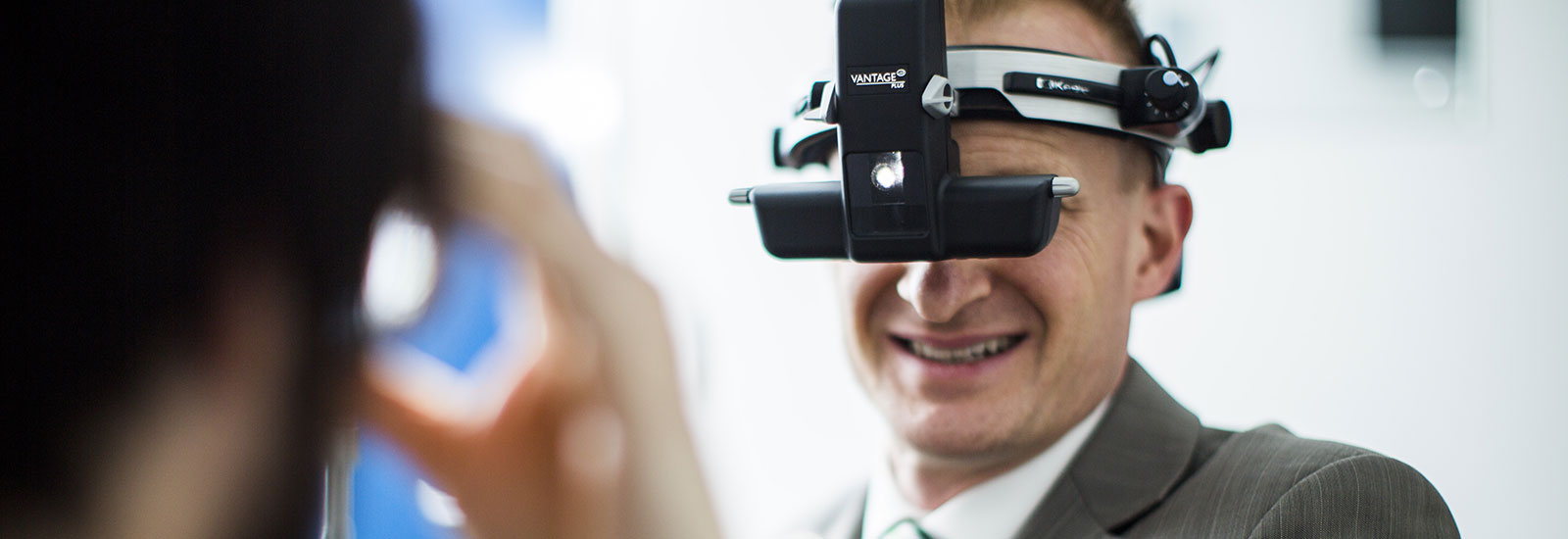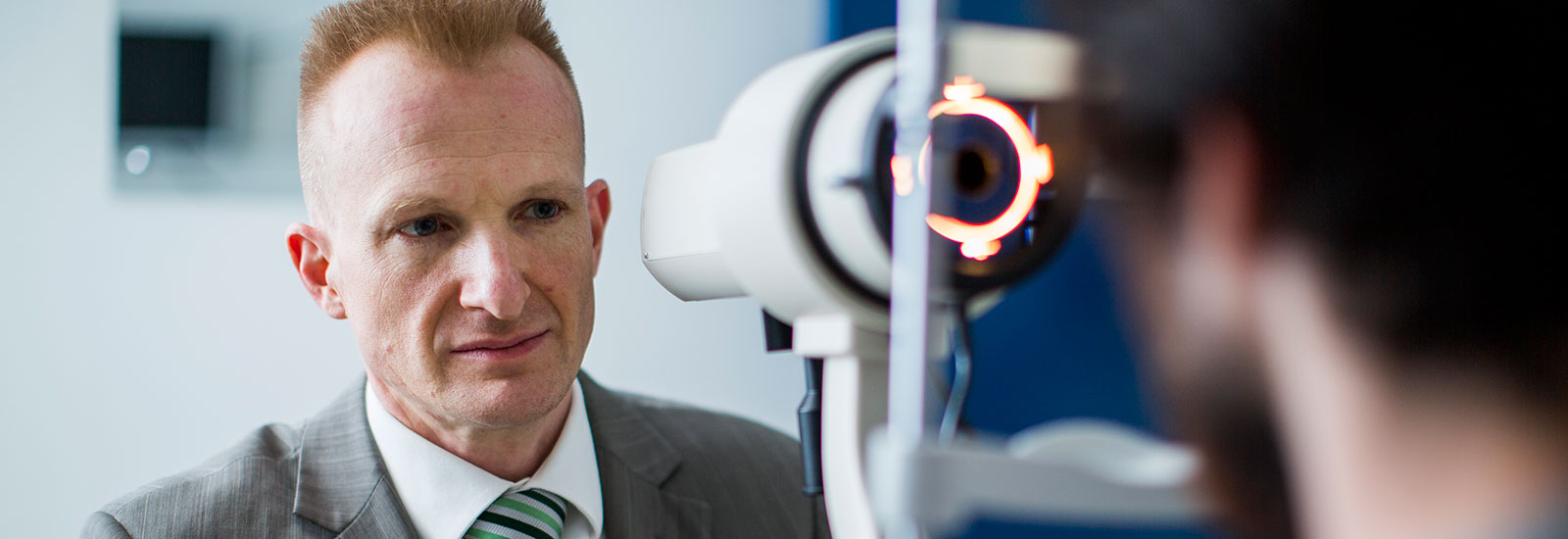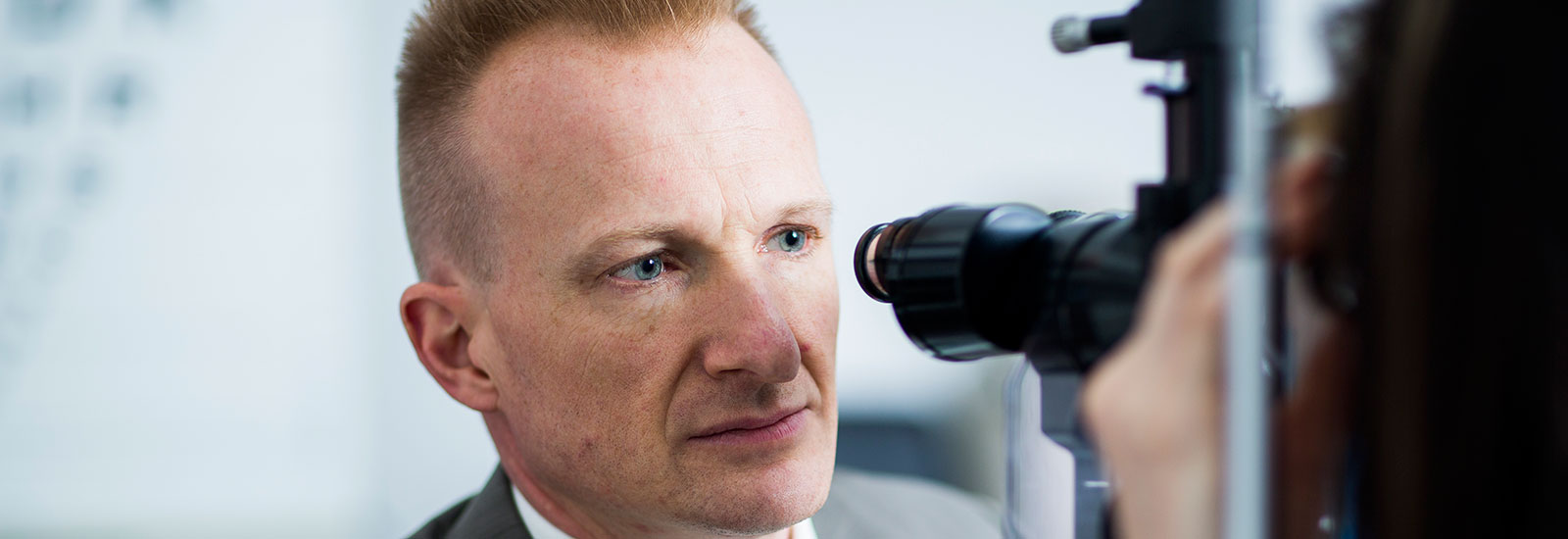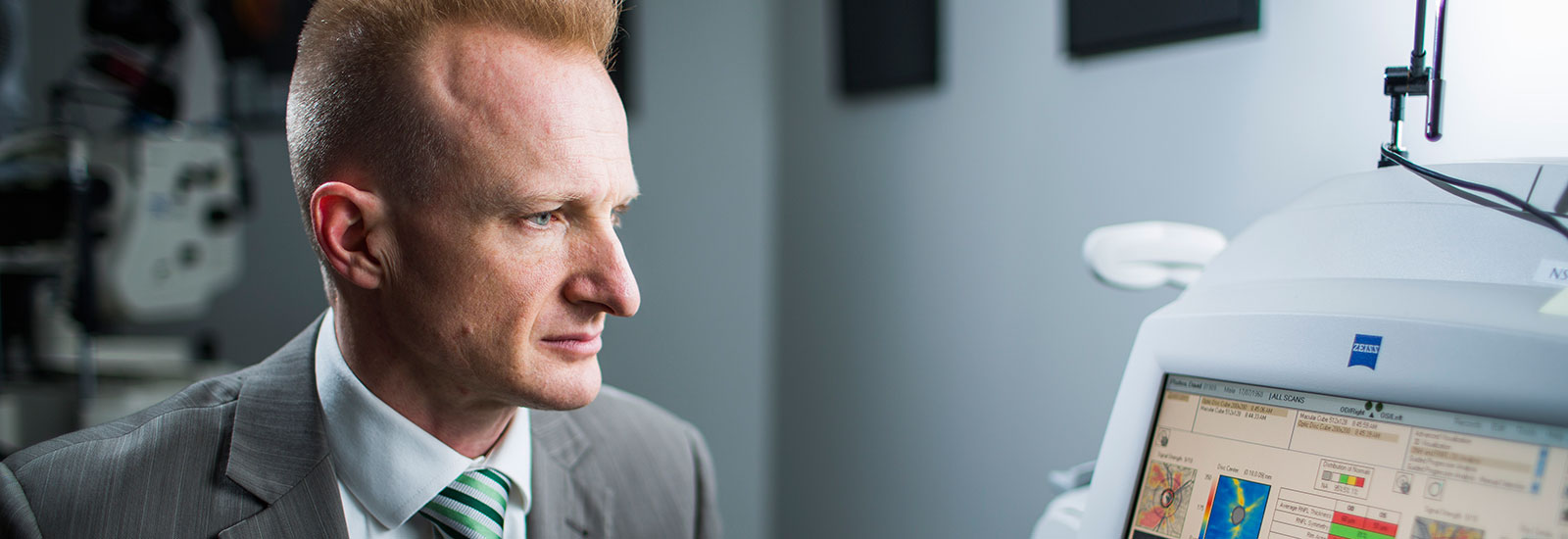







In the retina there is only one artery entering the eye and only one vein leaving it. Blood vessels can be damaged by conditions such as high blood pressure, diabetes or high cholesterol. Smoking can also damage blood vessels. Damage to the retinal veins can lead to blockage. In addition, the retinal vein can be more likely to become blocked if a patient has glaucoma.

Central Retinal Vein Occlusion: courtesy of National Eye Institute, National Institutes of Health
If the vein becomes blocked, this can lead to leaking of blood and fluid out of the sides of the vein. The leaking fluid can water-log the retina and damage the structures in the retina impairing their function. When this happens, vision can suddenly become blurry. If this happens, it is important to see your general practitioner or optometrist as soon as possible, so that you can be referred to an ophthalmologist early. If left untreated, vision can be permanently reduced. The eye can even become permenantly blind.
Your ophthalmologist will recommend the most appropriate course of action, which can sometimes be observation, as some patient will show spontaneous recovery. Sometimes laser is required to settle the leaking or bleeding, and sometimes intravitreal injections (into the eye) of medications called Avastin, or Lucentis, or Eylea are required.